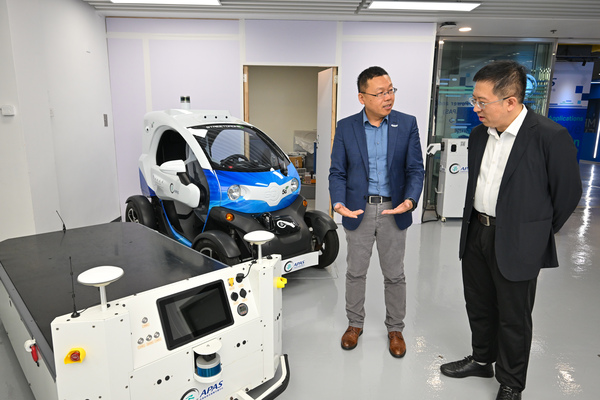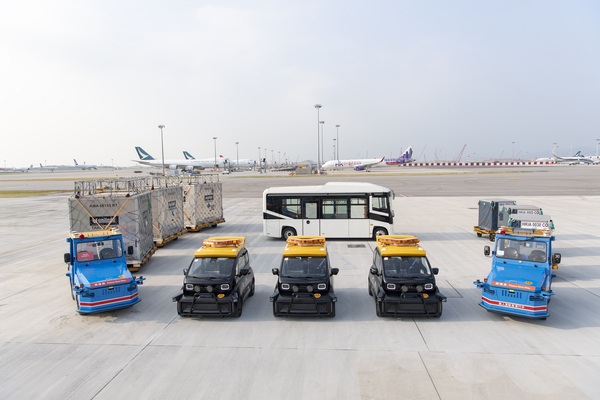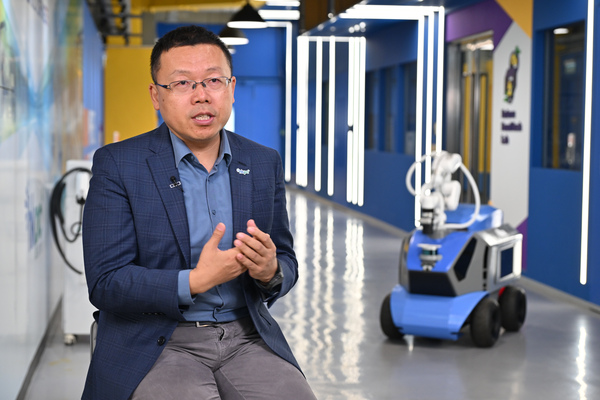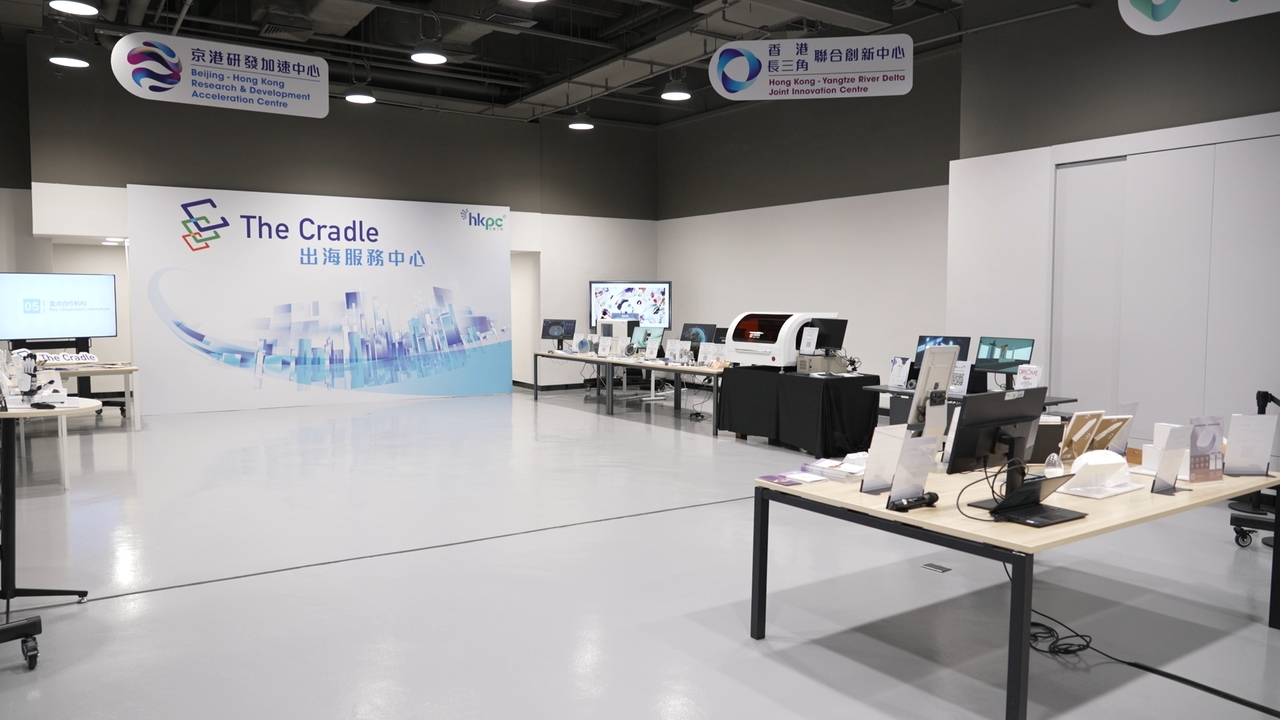Businesses go global via HK
At Hong Kong International Airport, a driverless bus smoothly navigates turns, avoiding obstacles and stopping automatically.
What could be a scene straight from a science fiction movie is in fact a demonstration of autonomous driving technology developed by a tech company from Beijing. The technology has been deployed at the airport since 2019.
The “AI driver” not only drives shuttle buses transporting staff, but also operates electric tractors for delivering luggage and cargo, as well as patrol cars that enhance security in restricted areas.
In recent years, the company's technology has successfully reached overseas markets, with Hamad International Airport in Doha, Qatar as its latest pilot site.
Real-world verification
“Hong Kong is our ideal launchpad to go global,” said Xu Shu, the tech company's Overseas Business Division & Hong Kong General Manager.
Mr Xu noted that the clients in Hong Kong are eager to adopt new technologies, and that the city offers a rich pool of tech talent and various scenarios to enhance their technology.
“Hong Kong is highly internationalised and standardised. For the same luggage or cargo transport tasks, we must align with the strict regulations here in Hong Kong. Having gone through the intense processes for such scenarios here, we have full confidence that we can do the same in other countries.”
He added that their successful collaboration with Hong Kong International Airport has played a pivotal role in attracting international clients.
“Another key aspect is that Hong Kong is a gateway to the world. Successfully launching aviation-related unmanned operations at a leading airport such as Hong Kong International Airport significantly boosts client confidence.”
One-stop support
The driving force behind the tech company's journey to go global through Hong Kong was the Productivity Council.
As one of the earliest institutions in Hong Kong to develop autonomous driving technology, the council fully understands client needs. It helped the company to evaluate the feasibility of its technology, optimised the software and hardware, and ensured compliance with international standards.
Noting that there has been a strong demand from Hong Kong and Mainland companies for global presence, the Government has introduced various supporting measures in recent years. To align with the government’s policy directives and respond to such growing demand, the Productivity Council officially launched The Cradle - Going Global Service Centre in April.
Supported by three Mainland innovation centres, namely the Zhongguancun Beijing-Hong Kong-Macao Youth Innovation Centre, the National Innovation Centre par Excellence and the Greater Bay Area National Centre of Technology Innovation, the Cradle offers one-stop support tailored to businesses, including intellectual property management, consultation on government funding schemes, and more.
The Cradle also helps enterprises to build overseas networks and gain market insights through trade visits, exhibitions and exchange activities.
Tailored solutions
“Exporting to Southeast Asia, the Middle East or Europe involves different requirements. User demands, laws, regulations, standards, and levels of acceptance all vary,” Productivity Council Chief Innovation Officer Du Yonghai explained.
“We categorise the needs for going global into four levels: product exports, technology exports, manufacturing exports, and a broader level of management exports, which means the international operation of businesses.”
He pointed out that the challenges and timelines for overseas expansion vary for each company.
To enhance the efficiency of its support, the council is developing an online assessment tool to quickly evaluate a company's needs for going global, identify its capability gaps, and determine which services the council can provide or which services they can refer to their partners.




